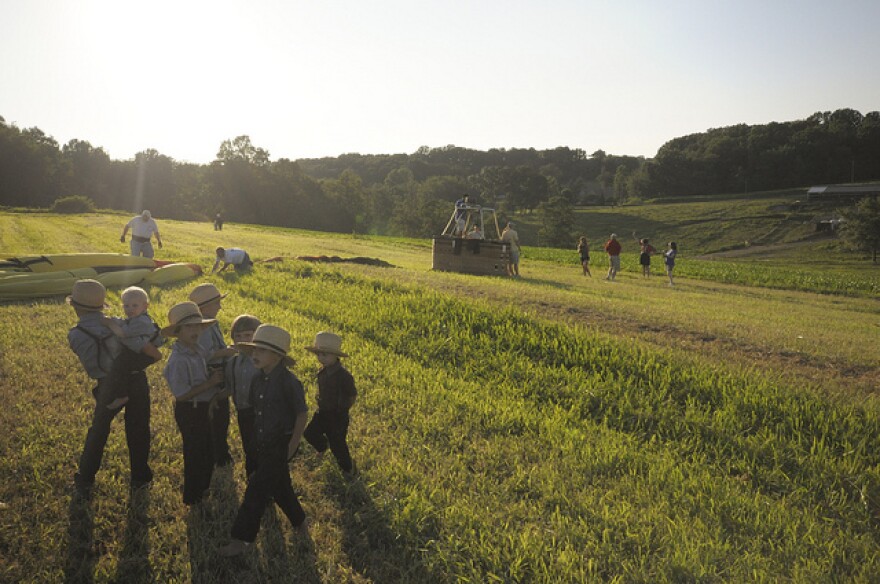From dealing with cavities to high blood pressure to developing resilience, being a kid can be tough these days. Sound Medicine producers pulled their favorite stories on the topic from the archives to clue parents in on what they should be doing.
Why Amish children have fewer allergies
Living next to a barn could be strengthening the immune systems of Amish children, according to Indianapolis-based allergy specialist Mark Holbreich. After studying children in northern Indiana Amish communities, Dr. Holbreich said he discovered a very low incidence of allergies and asthma in comparison to children who live in suburban or city areas. The immune changes began with the women working in the barn during pregnancy. The children are then exposed to large animals in early childhood, and drink raw unpasteurized and unhomogenized milk.
"It seems there are probably some bacteria on the animals that may affect the immune system of children that may drive them away from allergies."

The troubling trend of preschoolers and cavities
For the first time in 40 years, an increased number of children have multiple cavities, according to the Centers for Disease Control and Prevention. Poor diet, dental hygiene habits, and a lack of parent involvement has led to the problem, according to Jeffrey Dean, DDS, MSD, executive associate dean at IU School of Dentistry.
“It’s pretty disheartening as a pediatric dentist when I have a 1 or 2-year-old coming in with a sippy cup full of coke. That’s a problem.”
An adult condition showing up in more kids
According to a study by the University of Michigan, about 3 percent of American children have high blood pressure, putting them at a high risk of heart disease as adults. Joseph Flynn, M.D., professor of pediatrics at the University of Washington and chief of the division of nephrology at Seattle Children’s Hospital, said the problem stems from the childhood obesity epidemic. From turning off the TV and playing outside to eating all three meals each day, parents and children should never ignore the problem. With overweight teens, parents should take a different approach to the problem.
“With a 15-year-old it’s very different, we need to engage the adolescent in the program or it won’t be successful.”
Guiding your child to resilience
Children learn how to become resilient from the adults in their lives, according to Steven M. Southwick, M.D., a professor of psychiatry at Yale University and the author of “Resilience: The Science of Mastering Life’s Greatest Challenges.” Dr. Southwick explains how adults can help guide and soothe the emotions of children.
“Resilience basically the ability to bend but not break, and to bounce back after facing adversity or stress or trauma.”

An update on a very special boy named Charlie
Pediatrician Jim Ogan, who established the University of Virginia Medical Center, authored an inspiring essay titled “Holy Moments” about a special neonatal intensive care patient. Dr. Ogan's essay about a very special boy named Charlie was featured on Sound Medicine in 2012.
"Charlie is thriving. He's now using a wheelchair, and he attends his brother's and sister's baseball games."


